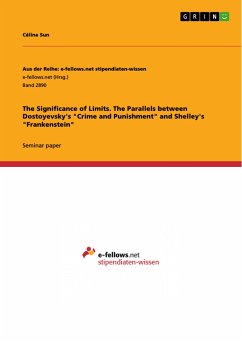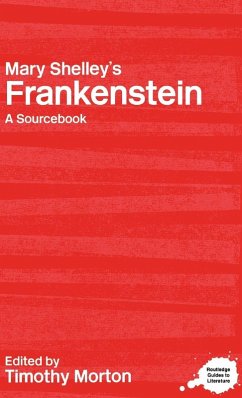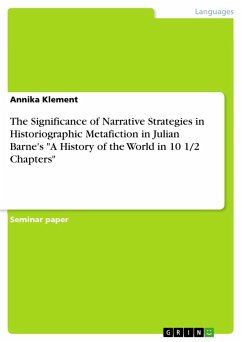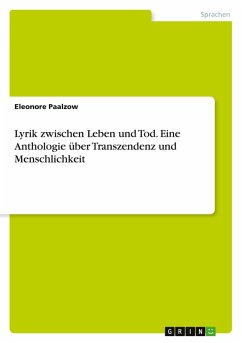
The Significance of Limits. The Parallels between Dostoyevsky's "Crime and Punishment" and Shelley's "Frankenstein"

PAYBACK Punkte
0 °P sammeln!
Seminar paper from the year 2018 in the subject Literature - Comparative Literature, grade: 1,7, University of Cambridge (Faculty of Divinity), course: Religious Themes in Literature, language: English, abstract: The transgression of limits is a central theme of the novels by Dostoyevsky and Shelley. The stories examine the world of thought and action of two characters feeling trapped within certain limits and trying to break through them, while in their failures other limitations manifest themselves. These different levels add to a total picture reflecting the limits of a consciousness that s...
Seminar paper from the year 2018 in the subject Literature - Comparative Literature, grade: 1,7, University of Cambridge (Faculty of Divinity), course: Religious Themes in Literature, language: English, abstract: The transgression of limits is a central theme of the novels by Dostoyevsky and Shelley. The stories examine the world of thought and action of two characters feeling trapped within certain limits and trying to break through them, while in their failures other limitations manifest themselves. These different levels add to a total picture reflecting the limits of a consciousness that seeks to overcome its own finitude - manifested in the embodiedness of the self and the factual resistance of the world - through the assertion of the self, but ends up trapped within itself. The stories eventually culminate in the realization that only the opening towards a genuine other can lead out of the entrapment within the self and factuality, and open up a dimension in which the embodied world and every single consciousness is given meaning and value.I will show that the inner conflict of the two characters is essentially the same, despite the different personal convictions of the authors - Dostoyevsky as a conflicted Christian, Shelley in her critical opposition to religion - and that because of this difference, a resolution of the conflict is possible only in one case. Both authors place their figures in an ultimately profane world from which the latter have alienated themselves to the core of their existence and essence. The opening of the self towards an other is crucial for reconciliation - interhuman relation, however, is also met with limitations within the embodied world. The (im)possibility of overcoming these, at last, is not only conveyed through the content of the stories but concretely realized in the distinctive form of their narrative.













